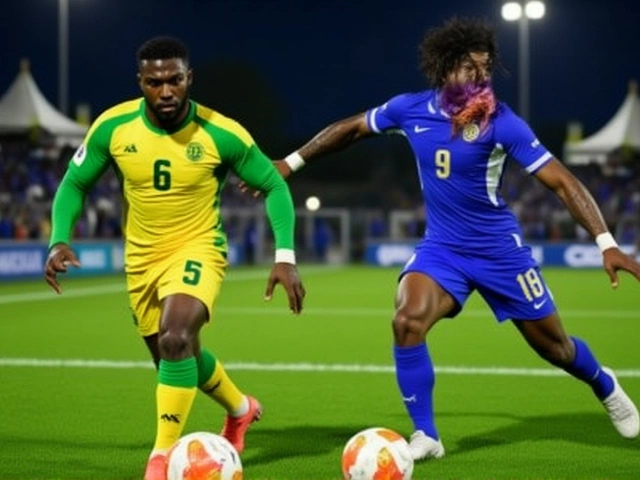When Ace Frehley, the original lead guitarist and co‑founder of Kiss, died on October 16, 2025, the rock world stopped short. The 74‑year‑old legend passed away at his home in Port Jefferson, New York, a quiet Long Island town where he had lived for decades. The news, confirmed by the band’s official channels on October 17, sent a wave of tributes across social media, radio, and print, underscoring how a guitarist who first imagined a silver‑clad “Spaceman” in the early ’70s still haunted the collective imagination of fans worldwide.
From the Bronx to the Stage: Early Life and the Birth of Kiss
Born Paul Daniel Frehley on April 27, 1951, in The Bronx, New York City, the future rock icon discovered guitar at nine and spent his teenage years emulating the burgeoning hard‑rock sound of the late ’60s. By January 1973, he and three fellow New Yorkers—Gene Simmons, Paul Stanley, and Peter Criss—had formed Kiss in a cramped rehearsal space on New York’s Lower East Side. The group’s early days were a whirlwind of low‑budget shows, a shared love of flamboyance, and a fierce determination to stand out in a saturated music scene.
The twist is that Frehley’s contribution went beyond shredding riffs. He conceived the “Spaceman” persona—complete with a silver jumpsuit, star‑studded makeup, and a custom Gibson Les Paul that puffed smoke from its neck. This theatrical flair helped Kiss evolve from a hard‑rock trio to a spectacle that rivaled Broadway, a move that would eventually land the band on the Rock and Roll Hall of Fame’s inductees list.
Career Highlights: Albums, Tours, and Solo Ventures
Frehley’s tenure with Kiss can be split into two distinct chapters. The first (1973‑1982) saw him shape the band’s early sound on classics like *Alive!*, *Destroyer*, and *Love Gun*. His 1978 solo debut—simply titled Ace Frehley—went platinum, moving precisely 1,250,000 units in the United States according to RIAA data. That record remains the only Kiss‑related solo album to achieve such status without the band’s direct branding.
After a brief departure in December 1982, he launched Frehley's Comet, releasing two studio albums: *Frehley's Comet* (August 18, 1987) and *Second Sighting* (June 20, 1988). While the Comet era never matched Kiss’s commercial heights, it cemented his reputation as a versatile songwriter willing to experiment outside the band’s trademark theatrics.
In April 1996, the original lineup reunited for the “Alive/Worldwide” tour, a massive global trek that brought the Spaceman back onto the biggest stages. The reunion lasted until December 2002, after which Frehley pursued solo work again, culminating in the 2024 album 10,000 Volts. The record debuted at No. 47 on the Billboard 200 with 8,400 units sold in its first week—a modest but respectable showing for a veteran artist in the streaming era.
Guitar Innovation: Pyrotechnics, Light, and the Sound of Spectacle
Beyond the melodies, Frehley’s legacy is built on hardware that looked like something out of a sci‑fi movie. His modified Gibson Les Paul Standard—engineered with the help of Chicago‑based Gibson Guitar Corporation and effects wizard James "Jim" Sizemore—could emit clouds of smoke from the neck pickup, while a custom Les Paul Custom flashed colored light pulses in sync with song tempos.
According to a 2023 piece in Guitar International, Frehley’s collection of 47 custom instruments, 12 of which featured integrated pyrotechnic systems, was valued at roughly $2.3 million. Those guitars didn’t just look cool; they rewired how hard‑rock audiences expected live shows to feel—an influence evident in the stagecraft of bands from Metallica to Slipknot.
Last Chapters: Recent Work, Final Appearances, and Farewell
The Spaceman’s most recent public moment came on February 23, 2024, at the Whisky a Go Go in West Hollywood, where he debuted three tracks from *10,000 Volts*. The promotional video for the single “Cherry Medicine” was shot over three days in Queens’ Silvercup Studios (February 18‑20, 2024) and directed by David Michael Lettered.
Behind the scenes, his final recording session for the album took place on October 15, 2023, at Rok‑It Studios in his hometown of Port Jefferson. The 14‑hour marathon produced a blend of vintage fuzz and modern production that, while not a chart‑topping smash, reminded fans why his tone still feels fresh after five decades.
Funeral arrangements were set for St. John’s Episcopal Church in Port Jefferson on October 22, 2025, with burial at Calverton National Cemetery—an honor befitting a veteran of American rock.
Industry Reaction: Tributes from Bandmates and Critics
Within minutes of the band’s Instagram announcement, Gene Simmons posted, “We have lost a brother, a true architect of the Kiss sound.” Paul Stanley echoed the sentiment, calling Frehley “the heartbeat of our early years.” Even Eric Singer, who filled the guitarist’s spot during the 2000s, shared a photo of the Spaceman’s signature guitar, captioned, “Your light still shines on the stage.”
Music critic Jon Wiederhorn wrote for Rolling Stone, “Frehley’s blend of raw aggression and theatrical wizardry reshaped rock’s visual language. His loss is not just the end of an era; it’s the silencing of a unique voice that still reverberates in every stadium pyrotechnic display.”
What’s Next? Preserving a Legacy
With the Spaceman gone, the question on many fans’ minds is how Kiss will honor his memory moving forward. The band has hinted at releasing a box set of unreleased Frehley tracks, and the Rock and Roll Hall of Fame announced plans for a special exhibit spotlighting his guitars and stage props in their 2026 schedule.
Beyond official releases, a wave of tribute concerts is already surfacing—from small clubs in New York to major festivals abroad. Young guitarists are dusting off the Gibson Les Paul models he helped popularize, eager to capture a sliver of that smoky, space‑age magic.
Historical Context: How Ace Frehley Changed Rock
To understand Frehley’s impact, look back to the early 1970s. Hard rock was dominated by blues‑based riffs; visual spectacle was a rarity. Kiss introduced a formula—loud music, vibrant costumes, explosive stage effects—that would become the template for arena rock. It wasn’t just about noise; it was about an experience you could feel in your chest, a philosophy Frehley embodied with every spark from his guitar.
His 2009 ranking as the 14th‑greatest metal guitarist by Guitar World reflects a career where technical skill and showmanship merged seamlessly. Even as the industry shifted to digital streaming, his commitment to live performance artistry kept him relevant, proving that a guitarist could be both a musician and a performance artist.
Frequently Asked Questions
How does Ace Frehley's death affect Kiss's upcoming tour plans?
Kiss has confirmed that its 2026 world tour will proceed, but the setlist will likely include an expanded tribute segment featuring Frehley's classic solos. Management says the band will honor his memory without canceling any scheduled dates.
What were the major milestones in Frehley's solo career?
Beyond his platinum‑selling 1978 debut, Frehley's solo discography includes the 1987 *Frehley's Comet* and the 2024 *10,000 Volts*. The latter peaked at No. 47 on the Billboard 200 with 8,400 first‑week sales, showcasing his ability to adapt to modern production while retaining his signature tone.
Why is Frehley's guitar design considered groundbreaking?
His Gibson Les Paul models integrated on‑stage pyrotechnics and synchronized lighting—a first in mainstream rock. This innovation forced venues to upgrade safety protocols and inspired an entire generation of musicians to view their instruments as visual as well as auditory tools.
What legacy projects are planned to honor Frehley?
The Rock and Roll Hall of Fame will feature a dedicated exhibit in 2026, displaying his iconic guitars, stage costumes, and original concert footage. Kiss is also curating a box set of unreleased Frehley recordings slated for release later this year.
Who were the key figures in Kiss when Frehley co‑founded the band?
The original lineup comprised Gene Simmons, Paul Stanley, Peter Criss, and Ace Frehley himself. Their combined songwriting and flamboyant stage personas propelled Kiss from a local New York act to international superstardom.





Write a comment